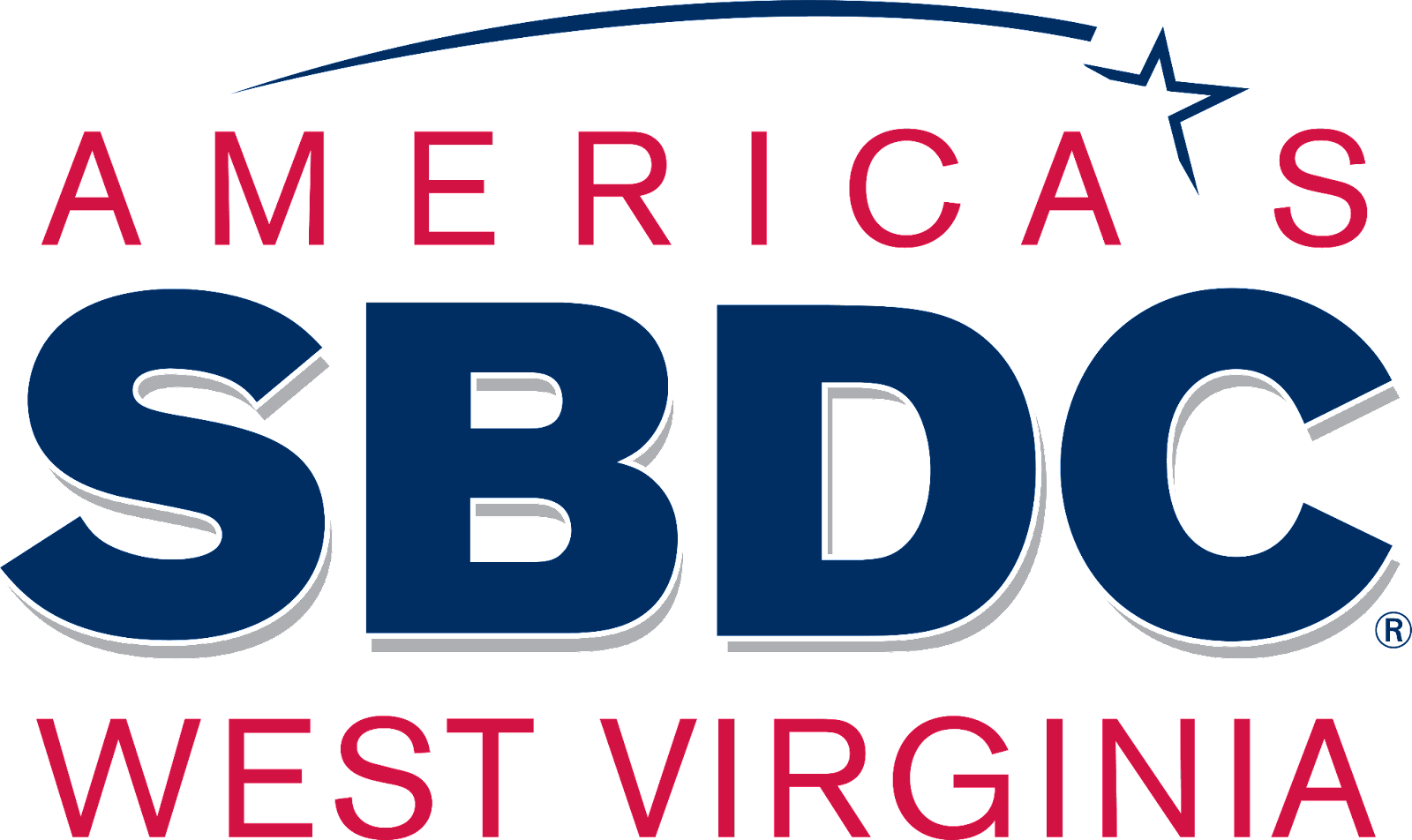As a business owner, keeping up with all the rules and regulations surrounding your business is vital. However, while meeting your company goals, interacting with clients and keeping things running, staying current on changes can take a lot of work. At the West Virginia Small Business Development Center (WV SBDC), we can help. This Essential Guide breaks down what you need to know about the Corporate Transparency Act. Discover compliance information, important dates, and more! For specific questions, reach out to an SBDC Business Coach today.
The Corporate Transparency Act (CTA) was created to combat illicit activities, including money laundering, terrorism financing and other financial crimes. This legislation increases transparency in corporate ownership. As a business owner, it’s crucial to understand the CTA’s requirements and how to ensure your company is compliant. This guide provides an overview of the CTA’s key aspects, including filing deadlines. Within it, you will find detailed information on Business Ownership Information (BOI) and more.

What is the Corporate Transparency Act?
The CTA was enacted as part of the Anti-Money Laundering Act of 2020. This legislation included a host of significant updates intended to combat money laundering, tax fraud and the financing of terrorism. CTA is part of the William M. (MAC) Thornberry National Defense Authorization Act of 2021 (NDAA). It requires certain business entities to disclose information about their beneficial owners to the Financial Crimes Enforcement Network (FinCEN). The main goal is to create a centralized database of beneficial ownership information to help law enforcement and regulatory agencies track and prevent financial crimes.
Why You Should Care
- Nearly all small and medium sized businesses must file a “Beneficial Ownership Information Report” (BOI Report) in 2024. File Now
- As of January 1, 2024, there are approximately 32.6 million entities that are subject to the (BOI) reporting requirement.
- The January 1, 2024 “effective date” has come and gone.
- Existing companies have until January 1, 2025 to file your first (BOI) report.
- Analysis and data collection can be complex and time-sensitive
- Penalties are steep! $500/day, up to $10,000
Three Most Important Questions
- Is a company a Reporting Company?
- If yes, which individual(s) are reportable Beneficial Owners?
- If applicable, who are the reportable Company Applicant(s)? (Applicable to entities formed after January 1, 2024)
What is a Reporting Company?
Reporting companies fall into one of two categories: domestic or foreign. We break down the differences and share examples of each below.
- Domestic reporting companies
- A corporation,
- A limited liability company (LLC), or
- Any other company created by the filing of a document with the Secretary of State – or similar office (including tribal organizations)
- Examples
- West Virginia Limited Liability Company
- California For-Profit Corporation
- Florida Homeowners Association
- Texas General Partnership
- Massachusetts Tribal Organization
- Foreign reporting companies
- A company formed under the laws of a foreign country; and
- Registered to do business in any U.S. state or tribal jurisdiction
- Examples
- Cayman Island LP registered to do business in West Virginia
- Colombian LTDA registered to do business in Florida
- Swiss Cooperative registered to do business in New York

Who Must Comply?
The CTA applies to a wide range of entities, including:
- Corporations
- Limited liability companies (LLCs)
- Similar entities created in the United States
- Similar entities registered to do business in the United States.
There are 23 total exemptions. These are the six most notable exemption types:
- Companies in highly-regulated environments
- Certain registered or “large” investment companies
- Tax-exempt entities and their assisting entities
- Large operating companies:
- 20+ full-time employees; and
- Physical presence in U.S.; and
- More than $5M in gross receipts/sales
- Subsidiaries of certain exempt entities
- Certain inactive entities
It’s important to consult the specific exemptions to determine what businesses qualify. FinCEN’s Small Entity Compliance Guide includes a full table and checklists for each of the exemptions. Specifically, check out Chapter 1.2, “Is my company exempt from the reporting requirements?”. Companies should carefully review the qualifying criteria before concluding that they are exempt.
What is Business Ownership Information (BOI)?
Business Ownership Information (BOI) refers to the detailed data about the individuals who ultimately own or control a business entity.
Which individuals are Beneficial Owners?
An individual is a Beneficial Owner if he or she:
- Directly or indirectly exercises “substantial control”; OR
- Directly or indirectly owns or controls 25% of ownership interests
- Examples:
- Husband and wife owners of a general store operated through an LLC
- COO of a 10-employee tech company operated through a corporation
- Chairman of the Board of a UK-based multinational with U.S. sales and support operation

Who is a Company Applicant?
- Up to two individuals; one who:
- Directly files the creation/registration document
- Primarily responsible for controlling the relevant document
- Only companies formed on/after January 1, 2024 must report
- A reporting company is not required to report its company applicants if it is either a:
- A domestic reporting company created before January 1, 2024; or
- A foreign reporting company first registered to do business in the United States before January 1, 2024.
What needs to be reported, and how?
- Information on the Reporting Company
- Legal name and DBA/trade name
- Current physical address
- Jurisdiction of formation
- Federal Taxpayer ID number (or foreign TIN)
- Information on Beneficial Owners and Company Applicants
- Full legal name: The company name of the beneficial owner as it appears on legal documents.
- Date of birth: The birth date of the beneficial owner
- Residential or business address : The primary address where the beneficial owner resides or conducts business
- Identifying number and issuing jurisdiction of U.S. passport (foreign passport is allowable if no other types of documents exist), Driver’s License, or state/local/tribal ID
- Copy of identifying document
- Note: Individuals and entities may apply for and obtain a FinCEN identifier, which can be included on subsequent filings in lieu of this information.
- BOI Reports can be submitted using:
- Secure filing system via FinCEN.gov (available January 1, 2024). FinCEN DOES NOT charge a filing fee.
- Online Filing Services such as FileForms.com are options to facilitate filing your BOI Report, however, this is a FEE-BASED service.
- Paper filing may be available, if electronic filing is not possible. If you can’t file electronically, you can contact legal counsel or other service providers involved in the formation or registration of legal entities for help complying with the CTA’s new beneficial ownership reporting requirements.
Filing Deadlines

- New Entities:
- Effective January 1, 2024: New entities created or registered after this date must file their initial beneficial ownership information report with FinCEN within 90 days of formation or registration.
- Effective January 1, 2025: New entities created or registered after this date must file their initial beneficial ownership information report with FinCEN within 30 days of formation or registration.
- Existing Entities:
- Effective January 1, 2024: Existing entities created or registered before this date must file their initial beneficial ownership information report with FinCEN by January 1, 2025.
- Updates to Information:
- Change of Information (“COI”) filings must be filed within 30 days of change
- Previously exempt reporting companies must file within 30 days of the non-exempt date.

Penalties for Non-Compliance
Failure to comply with the CTA’s reporting requirements can result in significant penalties, including:
- Civil penalties: $500 per day, up to $10,000 (per entity)
- Criminal penalties: up to two years for willful violations
- Note: Individuals may also be subject to civil or criminal penalties for willfully causing a company not to file a required BOI report or by providing incomplete or false information
Latest Updates from FinCEN
- Final rule for new companies in 2024
- 90 days to file a BOI report upon actual or public notice of their creation/registration
- Final rule on FinCEN Identifier
- It is NOT required to apply for FinCEN ID
- Only one FinCEN ID can be received
- FinCEN ID can be used in place of entering information each time a BOI report is filed
- Updated FAQs
- Who can file a BOI report?
- Anyone who the Reporting Company deems authorized to file
- How can filers make a change to their information?
- All information, including the change, will need to be submitted by PDF. If the BOI e-Filing application is used, a new BOI report must be submitted.
- Can Beneficial Owners be held liable?
- Yes, if a BO willfully withholds information or does not file, he or she can be held liable.
- Will there be evidence of a successful submission?
- Yes, a receipt will be provided, showing the information submitted and an indicator that the submission was successful. Third-party filers will also be able to obtain this information.
- For the latest BOI FAQ click here (last updated 07-24-2024).
Steps to Ensure Compliance

To ensure your company remains in compliance, consult the following checklist.
- Identify Beneficial Owners: Review your company’s ownership structure to identify all individuals who qualify as beneficial owners under the CTA.
- Gather Required Information: Collect the necessary information for each beneficial owner, ensuring it is accurate and up-to-date.
- File Reports Timely: Submit the required information to FinCEN within the designated deadlines for new and existing entities.
- Monitor and Update: Continuously monitor your company’s ownership changes and update the beneficial ownership information with FinCEN as required.
- Consult Legal Counsel: Seek advice from legal experts to ensure full compliance with the CTA and to understand any specific implications for your business.
UPDATED: Update to BOI Feb. 21
The nationwide injunction prohibiting enforcement of the Corporate Transparency Act (CTA) has been stayed; meaning, FinCEN will resume enforcement of the required beneficial ownership information (BOI) filings. Simply put, the CTA filing requirements are reinstated. FinCEN has issued a notice that reset the filing deadline for most companies to March 21, 2025. See notice here: FinCEN Notice, FIN-2025-CTA1, 2/18/2025.
The law is springing back into force as Congress still works through potential legislation to delay the reporting deadlines by a year. The House last week unanimously passed legislation, H.R. 736, that would delay the CTA reporting requirements until January 1, 2026. In the Senate, a group of Republicans led by Senator Tim Scott, have introduced a companion bill (S. 505).
The Trump administration has continued to defend the CTA in court. The press is reporting that FinCEN said today that the administration could revise the rules to reduce the compliance burden for “lower-risk entities, including many U.S. small businesses.” But there is no more clarity than that comment.
As a reminder, the Corporate Transparency Act requires most small businesses in the United States to make a filing with FinCEN (see here: https://boiefiling.fincen.gov). Each required entity must file a report containing the following information about the company:
- Entity’s full legal name
- Trade names
- A complete current address
- The jurisdiction it was formed in or jurisdiction in which a foreign company first registers
- Internal Revenue Service Taxpayer Identification Number and Employer Identification Number
- Information about each beneficial owner of the company, including this about each person:
- Full legal name
- Date of birth
- Current business or residential address
- A unique identifying number from an acceptable identification document (i.e., passport, driver’s license, etc.)
- Full legal name
Filing a Beneficial Ownership Information Report is free and will only be required once unless ownership information needs to be corrected or updated in the future. For more information on how to file and when, review our complete guide here, visit FinCEN.gov/BOI, or watch the five-minute video published by FinCEN.
Please share this update with your fellow business owners.
Additional information and legal updates are available at https://www.fincen.gov/boi.
IMPORTANT UPDATE: CTA / BOI REPORTING NEW UPDATE MARCH 05, 2025 – Read More
Additional Links and Resources
- Financial Crimes Enforcement Network (FinCEN) website – https://www.fincen.gov
- FinCEN Beneficial Ownership Information Reporting website – https://www.fincen.gov/boi
- FinCEN Five-Minute Demo: How to File a Beneficial Ownership Information (BOI) Report – https://www.youtube.com/watch?v=GydCvfbKxPw
- FinCEN Small Entity Compliance Guide – https://www.fincen.gov/boi/small-entity-compliance-guide
- FinCEN BOI FAQ updated 07-24-2024 – https://www.fincen.gov/sites/default/files/shared/BOI-FAQs-QA-508C.pdf
- FinCEN Anti-Money Laundering Act of 2020 FinCEN One-Pager – https://www.fincen.gov/sites/default/files/shared/20210615%20AMLA%20FinCEN%20One%20Pager_FINAL.pdf
- H.R.6395 – William M. (Mac) Thornberry National Defense Authorization Act for Fiscal Year 2021 – https://www.congress.gov/bill/116th-congress/house-bill/6395
- Public Law 116-283 01-01-2021 William M. (MAC) Thornberry National Defense Authorization Act for Fiscal Year 2021 – https://www.congress.gov/116/plaws/publ283/PLAW-116publ283.pdf (Note: Title LXIV – Establishing Beneficial Ownership Information Reporting Requirements begins on page 1,218)
- Learn more about CTA via the WV Secretary of State’s office – https://sos.wv.gov/business/Pages/cta.aspx
- Contact FinCEN Helpline Toll Free – (800) 767-2825 or (703) 905-3591
The Corporate Transparency Act represents a significant step towards greater corporate transparency and accountability. By understanding and adhering to the CTA’s requirements, business owners can help prevent financial crimes while avoiding substantial penalties. Stay informed and compliant and contribute to a more transparent business environment.
For more detailed information, visit the FinCEN website or consult a legal professional specializing in corporate compliance.
The WV Small Business Development Center (SBDC) stands ready to help you navigate this new filing requirement. Schedule a personalized consultation with an SBDC Business Coach today. Click here to book your session and get expert guidance tailored to your specific needs.
WV SBDC is an accredited partner program with the U.S. Small Business Administration and a division of the West Virginia Division of Economic Development. WV SBDC helps small businesses at all stages of development by connecting owners to programs, resources and coaches.

For more information about WV SBDC services and WV SBDC coaches, visit wvsbdc.com.


